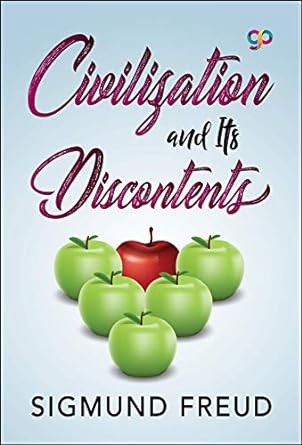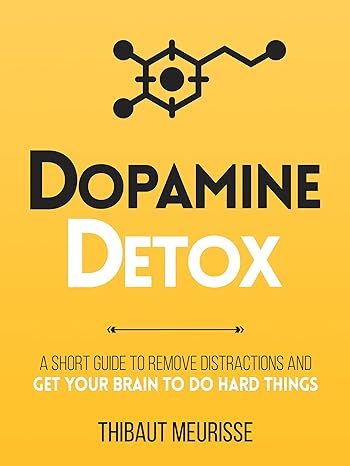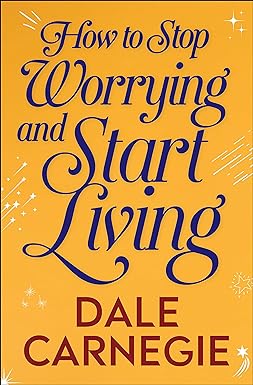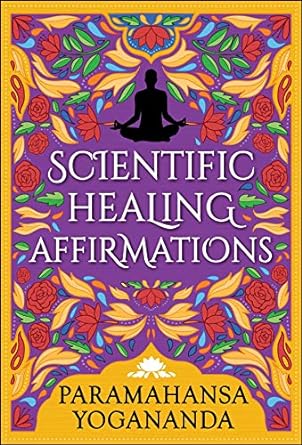
Civilization and Its Discontents
Civilization and Its Discontents' is one of the last of Freud's books, written in the decade before his death and first published in German in 1929. It is considered his most brilliant work. In it he states his views on the broad question of man's place in the world. It seeks to answer several questions fundamental to human society and its organization: What influences led to the creation of civilization? Why and how did it come to be? What determines civilization’s trajectory? Freud’s theories on the effect of the knowledge of death on human existence and the birth of art are central to his work.
Many of humankind's primitive instincts (for example, the desire to kill and the insatiable craving for sexual gratification) are clearly harmful to the well-being of a human community. As a result, civilization creates laws that prohibit killing, rape, and adultery, and it implements severe punishments if such commandments are broken. This process, argues Freud, is an inherent quality of civilization that instills perpetual feelings of discontent in its citizens. Freud's theme is that what works for civilization doesn't necessarily work for man. Man, by nature aggressive and egotistical, seeks self-satisfaction.
BEST DEALS
About the Author
Sigmund Freud (1856-1939) is one of the twentieth century's greatest minds and the founder of the psychoanalytic school of psychology. His many works include 'The Ego and the Id', 'An Outline of Psycho-Analysis', Civilization and Its Discontent, and others. He was an Austrian neurologist who became known as the founding father of psychoanalysis. Freud qualified as a doctor of medicine at the University of Vienna in 1881, and then carried out research into cerebral palsy, aphasia and microscopic neuroanatomy at the Vienna General Hospital. He was appointed a university lecturer in neuropathology in 1885 and became a professor in 1902.
In creating psychoanalysis, a clinical method for treating psychopathology through dialogue between a patient and a psychoanalyst, Freud developed therapeutic techniques such as the use of free association and discovered transference, establishing its central role in the analytic process. Freud's redefinition of sexuality to include its infantile forms led him to formulate the Oedipus complex as the central tenet of psychoanalytical theory. His analysis of dreams as wish-fulfillments provided him with models for the clinical analysis of symptom formation and the mechanisms of repression as well as for elaboration of his theory of the unconscious as an agency disruptive of conscious states of mind.
Read Sample
Chapter 1
The impression forces itself upon one that men measure by false standards, that everyone seeks power, success, riches for himself and admires others who attain them, while undervaluing the truly precious things in life. And yet, in making any general judgment of this kind, one is in danger of forgetting the manifold variety of humanity and its mental life. There are certain men from whom their contemporaries do not withhold veneration, although their greatness rests on attributes and achievements which are completely foreign to the aims and ideals of the multitude. One might well be inclined to suppose that after all it is only a minority who appreciate these great men, while the majority cares nothing for them. But the discrepancy between men’s opinions and their behaviour is so wide and their desires so many-sided that things are probably not so simple.
One of these exceptional men calls himself my friend in his letters to me. I had sent him my little book which treats of religion as an illusion and he answered that he agreed entirely with my views on religion, but that he was sorry I had not properly appreciated the ultimate source of religious sentiments. This consists in a peculiar feeling, which never leaves him personally, which he finds shared by many others, and which he may suppose millions more also experience. It is a feeling which he would like to call a sensation of eternity, a feeling as of something limitless, unbounded, something “oceanic.“ It is, he says, a purely subjective experience, not an article of belief; it implies no assurance of personal immortality, but it is the source of the religious spirit and is taken hold off by the various Churches and religious systems, directed by them into definite channels, and also, no doubt, used up in them. One may rightly call oneself religious on the ground of this oceanic feeling alone, even though one reject all beliefs and all illusions.
These views, expressed by my friend whom I so greatly honour and who himself once in poetry described the magic of illusion, put me in a difficult position. I cannot discover this “oceanic” feeling in myself. It is not easy to deal scientifically with feelings. One may attempt to describe their physiological signs. Where that is impossible – I am afraid the oceanic feeling, too, will defy this kind of classification – nothing remains but to turn to the ideational content which most readily associates itself with the feeling. If I have understood my friend aright, he means the same thing as that consolation offered by an original and somewhat unconventional writer to his hero, contemplating suicide: “Out of this world we cannot fall.” So it is a feeling of indissoluble connection, of belonging inseparably to the external world as a whole. To me, personally, I may remark, this seems something more in the nature of an intellectual judgment, not, it is true, without any accompanying feeling-tone, but with one of a kind which characterizes other equally far-reaching reflections as well. I could not in my own person convince myself of the primary nature of such a feeling. But I cannot on that account deny that it in fact occurs in other people. One can only wonder whether it has been correctly interpreted and whether it is entitled to be acknowledged as the fons et origo of the whole need for religion.
I have nothing to suggest which could effectively settle the solution of this problem. The idea that man should receive intimation of his connection with the surrounding world by a direct feeling which aims from the outset at serving this purpose sounds so strange and is so incongruous with the structure of our psychology that one is justified in attempting a psycho-analytic, that is, genetic explanation of such a feeling. Whereupon the following lines of thought present themselves. Normally there is nothing we are more certain of than the feeling of our self, our own ego. It seems to us an independent unitary thing, sharply outlined against everything else. That this is a deceptive appearance, and that on the contrary the ego extends inwards without any sharp delimitation, into an unconscious mental entity which we call the id and to which it forms a facade, was first discovered by psycho-analytic research, and the latter still has much to tell us about the relations of the ego to the id. But towards the outer world, at any rate, the ego seems to keep itself clearly and sharply outlined and delimited. There is only one state of mind in which it fails to do this – an unusual state, it is true, but not one that can be judged as pathological. At its height, the state of being in love threatens to obliterate the boundaries between ego and object. Against all the evidence of his senses, the man in love declares that he and his beloved are one, and is prepared to behave as if it were a fact. A thing that can be temporarily effaced by a physiological function must also of course be liable to disturbance by morbid processes. From pathology we have come to know a large number of states in which the boundary line between ego and outer world become uncertain, or in which they are actually incorrectly perceived – cases in which parts of a man’s own body, even component parts of his own mind, perceptions, thoughts, feelings, appear to him alien and not belonging to himself; other cases in which a man ascribes to the external world things that clearly originate in himself, and that ought to be acknowledged by him. So the ego’s cognizance of itself is subject to disturbance, and the boundaries between it and the outer world are not immovable.
Further reflection shows that the adult’s sense of his own ego cannot have been the same from the beginning. It must have undergone a development, which naturally cannot be demonstrated, but which admits of reconstruction with a fair degree of probability. When the infant at the breast receives stimuli, he cannot as yet distinguish whether they come from his ego or from the outer world. He learns it gradually as the result of various exigencies. It must make the strongest impression on him that many sources of excitation, which later on he will recognize as his own bodily organs, can provide him at any time with sensations, whereas others become temporarily out of his reach – amongst these what he wants most of all, his mother’s breast – and reappear only as a result of his cries for help. Thus an object first presents itself to the ego as something existing outside, which is only induced to appear by a particular act. A further stimulus to the growth and formation of the ego, so that it becomes something more than a bundle of sensations, i.e., recognizes an outside, the external world. is afforded by the frequent, unavoidable and manifold pains and unpleasant sensations which the pleasure-principle, still in unrestricted domination, bids it abolish or avoid. The tendency arises to dissociate from the ego everything which can give rise to pain, to cast it out and create a pure pleasure-ego, in contrast to a threatening outside, not-self. The limits of this primitive pleasure-ego cannot escape readjustment through experience. Much that the individual wants to retain because it is pleasure-giving is nevertheless part not of the ego but of an object; and much that he wishes to eject because it torments him yet proves to be inseparable from the ego, arising from an inner source. He learns a method by which, through deliberate use of the sensory organs and suitable muscular movements, he can distinguish between internal and external – what is part of the ego and what originates in the outer world – and thus he makes the first step towards the introduction of the reality-principle which is to control his development further. This capacity for distinguishing which he learns of course serves a practical purpose, that of enabling him to defend himself against painful sensations felt by him or threatening him. Against certain painful excitations from within, the ego has only the same means of defence as that employed against pain coming from without, and this is the starting-point of important morbid disturbances.
In this way the ego detaches itself from the external world. It is more correct to say: Originally the ego includes everything, later it detaches from itself the external world. The ego-feeling we are aware of now is thus only a shrunken vestige of a far more extensive feeling – a feeling which embraced the universe and expressed an inseparable connection of the ego with the external world. If we may suppose that this primary ego-feeling has been preserved in the minds of many people – to a greater or lesser extent – it would co-exist like a sort of counterpart with the narrower and more sharply outlined ego-feeling of maturity, and the ideational content belonging to it would be precisely the notion of limitless extension and oneness with the universe – the same feeling as that described by my friend as “oceanic.” But have we any right to assume that the original type of feeling survives alongside the later one which has developed from it?
Undoubtedly we have: there is nothing unusual in such a phenomenon, whether in the psychological or in other spheres. Where animals are concerned, we hold the view that the most highly developed have arisen from the lowest. Yet we still find all the simple forms alive today. The great saurians are extinct and have made way for the mammals, but a typical representative of them, the crocodile, is still living among us. The analogy may be too remote, and it is also weakened by the fact that the surviving lower species are not as a rule the true ancestors of the present-day more highly developed types. The intermediate members have mostly died out and are known to us only through reconstruction. In the realm of mind, on the other hand, the primitive type is so commonly preserved alongside the transformations which have developed out of it that it is superfluous to give instances in proof of it. When this happens, it is usually the result of a bifurcation in development. One quantitative part of an attitude or an impulse has survived unchanged while another has undergone further development.
This brings us very close to the more general problem of conservation in the mind, which has so far hardly been discussed, but is so interesting and important that we may take the opportunity to pay it some attention, even though its relevance is not immediate. Since the time when we recognized the error of supposing that ordinary forgetting signified destruction or annihilation of the memory-trace, we have been inclined to the opposite view that nothing once formed in the mind could ever perish, that everything survives in some way or other, and is capable under certain conditions of being brought to light again, as, for instance, when regression extends back far enough. One might try to picture to oneself what this assumption signifies by a comparison taken from another field. Let us choose the history of the Eternal City as an example. Historians tell us that the oldest Rome of all was the Roma quadrata, a fenced settlement on the Palatine. Then followed the phase of the Septimontium, when the colonies on the different hills united together; then the town which was bounded by the Servian wall; and later still, after all the transformations in the periods of the republic and the early Caesars, the city which the Emperor Aurelian enclosed by his walls. We will not follow the changes the city went through any further, but will ask ourselves what traces of these early stages in its history a visitor to Rome may still find today, if he goes equipped with the most complete historical and topographical knowledge. Except for a few gaps, he will see the wall of Aurelian almost unchanged. He can find sections of the Servian rampart at certain points where it has been excavated and brought to light. If he knows enough – more than present-day archaeology – he may perhaps trace out in the structure of the town the whole course of this wall and the outline of Roma quadrata. Of the buildings which once occupied this ancient ground-plan he will find nothing, or but meagre fragments, for they exist no longer. With the best information about Rome of the republican era, the utmost he could achieve would be to indicate the sites where the temples and public buildings of that period stood. These places are now occupied by ruins, but the ruins are not those of the early buildings themselves but of restorations of them in later times after fires and demolitions. It is hardly necessary to mention that all these remains of ancient Rome are found woven into the fabric of a great metropolis which has arisen in the last few centuries since the Renaissance. There is assuredly much that is ancient still buried in the soil or under the modern buildings of the town. This is the way in which we find antiquities surviving in historic cities like Rome.
Now let us make the fantastic supposition that Rome were not a human dwelling-place, but a mental entity with just as long and varied a past history: that is, in which nothing once constructed had perished, and all the earlier stages of development had survived alongside the latest. This would mean that in Rome the palaces of the Caesars were still standing on the Palatine and the Septizonium of Septimius Severus was still towering to its old height; that the beautiful statues were still standing in the colonnade of the Castle of St. Angelo, as they were up to its siege by the Goths, and so on. But more still: where the Palazzo Caffarelli stands there would also be, without this being removed, the Temple of Jupiter Capitolinus, not merely in its latest form, moreover, as the Romans of the Caesars saw it, but also in its earliest shape, when it still wore an Etruscan design and was adorned with terra-cotta antifixae. Where the Coliseum stands now, we could at the same time admire Nero’s Golden House; on the Piazza of the Pantheon we should find out only the Pantheon of today as bequeathed to us by Hadrian, but on the same site also Agrippa’s original edifice; indeed, the same ground would support the church of Santa Maria sopra Minerva and the old temple over which it was built. And the observer would need merely to shift the focus of his eyes, perhaps, or change his position, in order to call up a view of either the one or the other.
There is clearly no object in spinning this fantasy further; it leads to the inconceivable, or even to absurdities. If we try to represent historical sequence in spatial terms, it can only be done by juxtaposition in space; the same space will not hold two contents. Our attempt seems like an idle game; it has only one justification; it shows us how far away from mastering the idiosyncrasies of mental life we are by treating them in terms of visual representation.
There is one objection, though, to which we must pay attention. It questions our choosing in particular the past history of a city to liken to the past of the mind. Even for mental life, our assumption that everything past is preserved holds good only on condition that the organ of the mind remains intact and its structure has not been injured by traumas or inflammation. Destructive influences comparable to these morbid agencies are never lacking in the history of any town, even if it has had a less chequered past than Rome, even if, like London, it has hardly ever been pillaged by an enemy. Demolitions and the erection of new buildings in the place of old occur in cities which have had the most peaceful existence; therefore a town is from the outset unsuited for the comparison I have made of it with a mental organism.
We admit this objection; we will abandon our search for a striking effect of contrast and turn to what is after all a closer object of comparison, the body of an animal or human being. But here, too, we find the same thing. The early stages of development are in no sense still extant; they have been absorbed into the later features for which they supplied the material. The embryo cannot be demonstrated in the adult; the thymus gland of childhood is replaced after puberty by connective tissue but no longer exists itself; in the marrow- bone of a grown man I can, it is true, trace the outline of the childish bone-structure, but this latter no longer survives in itself – it lengthened and thickened until it reached its final form. The fact is that a survival of all the early stages alongside the final form is only possible in the mind, and that it is impossible for us to represent a phenomenon of this kind in visual terms.
Perhaps we are going too far with this conclusion. Perhaps we ought to be content with the assertion that what is past in the mind can survive and need not necessarily perish. It is always possible that even in the mind much that is old may be so far obliterated or absorbed – whether normally or by way of exception – that it cannot be restored or reanimated by any means, or that survival of it is always connected with certain favourable conditions. It is possible, but we know nothing about it. We can only be sure that it is more the rule than the exception for the past to survive in the mind.
Thus we are entirely willing to acknowledge that the “oceanic” feeling exists in many people, and we are disposed to relate it to an early stage in ego-feeling; the further question then arises: what claim has this feeling to be regarded as the source of the need for religion.
To me this claim does not seem very forcible. Surely a feeling can only be a source of energy when it is itself the expression of a strong need. The derivation of a need for religion from the child’s feeling of helplessness and the longing it evokes for a father seems to me incontrovertible, especially since this feeling is not simply carried on from childhood days but is kept alive perpetually by the fear of what the superior power of fate will bring. I could not point to any need in childhood so strong as that for a father’s protection. Thus the part played by the “oceanic” feeling, which I suppose seeks to reinstate limitless narcissism, cannot possibly take the first place. The derivation of the religious attitude can be followed back in clear outline as far as the child’s feeling of helplessness. There may be something else behind this, but for the present it is wrapped in obscurity.
I can imagine that the “oceanic” feeling could become connected with religion later on. That feeling of oneness with the universe which is its ideational content sounds very like a first attempt at the consolations of religion, like another way taken by the ego of denying the dangers it sees threatening it in the external world. I must again confess that I find it very difficult to work with these intangible quantities. Another friend of mine, whose insatiable scientific curiosity has impelled him to the most out-of-the-way researches and to the acquisition of encyclopaedic knowledge, has assured me that the Yogi by their practices of withdrawal from the world, concentrating attention on bodily functions, peculiar methods of breathing, actually are able to produce new sensations and diffused feelings in themselves which he regards as regressions to primordial, deeply buried mental states. He sees in them a physiological foundation, so to speak, of much of the wisdom of mysticism. There would be connections to be made here with many obscure modifications of mental life, such as trance and ecstasy. But I am moved to exclaim, in the words of Schiller’s diver:
Who breathes overhead in the rose-tinted light may be glad!
Chapter 2
In my Future of an Illusion I was concerned much less with the deepest sources of religious feeling than with what the ordinary man understands by his religion, that system of doctrines and pledges that on the one hand explains the riddle of this world to him with an enviable completeness, and on the other assures him that a solicitous Providence is watching over him and will make up to him in a future existence for any shortcomings in this life. The ordinary man cannot imagine this Providence in any other form but that of a greatly exalted father, for only such a one could understand the needs of the sons of men, or be softened by their prayers and placated by the signs of their remorse. The whole thing is so patently infantile, so incongruous with reality, that to one whose attitude to humanity is friendly it is painful to think that the great majority of mortals will never be able to rise above this view of life. It is even more humiliating to discover what a large number of those alive today, who must see that this religion is not tenable, yet try to defend it inch by inch, as if with a series of pitiable rearguard actions. One would like to count oneself among the believers, so as to admonish the philosophers who try to preserve the God of religion by substituting for him an impersonal, shadowy, abstract principle, and say, “Thou shalt not take the name of the Lord thy God in vain!” Some of the great men of the past did the same, but that is no justification for us; we know why they had to do so.
We will now go back to the ordinary man and his religion – the only religion that ought to bear the name. The well-known words of one of our great and wise poets come to mind in which he expresses his view of the relation of religion to art and science. They run:
He who has Science and has Art,
Religion, too, has he;
Who has not Science, has not Art,
Let him religious be!
On the one hand, these words contrast religion with the two highest achievements of man, and on the other, they declare that in respect of their value in life they can represent or replace each other. If we wish to deprive even the ordinary man, too, of his religion, we shall clearly not have the authority of the poet on our side. We will seek to get in touch with the meaning of his utterance by a special way. Life as we find it is too hard for us; it entails too much pain, too many disappointments, impossible tasks. We cannot do without palliative remedies. We cannot dispense with auxiliary constructions, as Theodor Fontane said. There are perhaps three of these means: powerful diversions of interest, which lead us to care little about our misery; substitutive gratification, which lessen it; and intoxicating substances, which make us insensitive to it. Something of this kind is indispensable. Voltaire is aiming at a diversion of interest when he brings his Candide to a close with the advice that people should cultivate their gardens; scientific work is another deflection of the same kind. The substitute gratifications, such as art offers, are illusions in contrast to reality, but none the less satisfying to the mind on that account, thanks to the place which phantasy has reserved for herself in mental life. The intoxicating substances affect our body, alter its chemical processes. It is not so simple to find the place where religion belongs in this series. We must look further afield.
The question, “What is the purpose of human life?” has been asked times without number; it has never received a satisfactory answer; perhaps it does not admit of such an answer. Many a questioner has added that if it should appear that life has no purpose, then it would lose all value for him. But these threats alter nothing. It looks, on the contrary, as though one had a right to dismiss this question, for it seems to presuppose that belief in the superiority of the human race with which we are already so familiar in its other expressions. Nobody asks what is the purpose of the lives of animals, unless peradventure they are designed to be of service to man. But this, too, will not hold, for with many animals man can do nothing – except describe, classify, and study them; and countless species have declined to be put even to this use, by living and dying and becoming extinct before men had set eyes upon them. So again, only religion is able to answer the question of the purpose of life. One can hardly go wrong in concluding that the idea of a purpose in life stands and falls with the religious system.
We will turn, therefore, to the less ambitious problem: what the behaviour of men themselves reveals as the purpose and object of their lives, what they demand of life and wish to attain in it. The answer to this can hardly be in doubt: they seek happiness, they want to become happy and to remain so. There are two sides to this striving, a positive and a negative; it aims on the one hand at eliminating pain and discomfort, on the other at the experience of intense pleasures. In its narrower sense, the word happiness relates only to the last. Thus human activities branch off in two directions – corresponding to this double goal – according to which of the two they aim at realizing, either predominantly or even exclusively.
As we see, it is simply the pleasure-principle which draws up the programme of life’s purpose. This principle dominates the operation of the mental apparatus from the very beginning; there can be no doubt about its efficiency, and yet its programme is in conflict with the whole world, with the macrocosm as much as with the microcosm. It simply cannot be put into execution, the whole constitution of things runs counter to it; one might say the intention that man should be happy is not included in the scheme of Creation. What is called happiness in its narrowest sense comes from the satisfaction – most often instantaneous – of pent-up needs which have reached great intensity, and by its very nature can only be a transitory experience. When any condition desired by the pleasure-principle is protracted, it results in a feeling only of mild comfort; we are so constituted that we can only intensely enjoy contrasts, much less intensely states in themselves. Our possibilities of happiness are thus limited from the start by our very constitution. It is much less difficult to be unhappy. Suffering comes from three quarters: from our own body, which is destined to decay and dissolution, and cannot even dispense with anxiety and pain as danger-signals; from the outer world, which can rage against us with the most powerful and pitiless forces of destruction; and finally from our relations with other men. The unhappiness which has this last origin we find perhaps more painful than any other; we tend to regard it more or less as a gratuitous addition, although it cannot be any less an inevitable fate than the suffering that proceeds from other sources.
It is no wonder if, under the pressure of these possibilities of suffering, humanity is won’t to reduce its demands for happiness, just as even the pleasure-principle itself changes into the more accommodating reality-principle under the influence of external environment; if a man thinks himself happy if he has merely escaped unhappiness or weathered trouble; if in general the task of avoiding pain forces that of obtaining pleasure into the background. Reflection shows that there are very different ways of attempting to perform this task; and all these ways have been recommended by the various schools of wisdom in the art of life and put into practice by men. Unbridled gratification of all desires forces itself into the foreground as the most alluring guiding principle in life, but it entails preferring enjoyment to caution and penalizes itself after short indulgence. The other methods, in which avoidance of pain is the main motive, are differentiated according to the source of the suffering against which they are mainly directed. Some of these measures are extreme and some moderate, some are one-sided and some deal with several aspects of the matter at once. Voluntary loneliness, isolation from others, is the readiest safeguard against the unhappiness that may arise out of human relations. We know what this means: the happiness found along this path is that of peace. Against the dreaded outer world one can defend oneself only by turning away in some other direction, if the difficulty is to be solved single-handed. There is indeed another and better way: that of combining with the rest of the human community and taking up the attack on nature, thus forcing it to obey human will, under the guidance of science. One is working, then, with all for the good of all. But the most interesting methods for averting pain are those which aim in influencing the organism itself. In the last analysis, all pain is but sensation; it only exists in so far as we feel it, and we feel it only in consequence of certain characteristics of our organism.
The crudest of these methods of influencing the body, but also the most effective, is the chemical one: that of intoxication. I do not think anyone entirely understands their operation, but it is a fact that there are certain substances foreign to the body which, when present in the blood or tissues, directly cause us pleasurable sensations, but also so change the conditions of our perceptivity that we become insensible of disagreeable sensations. The two effects not only take place simultaneously, they seem to be closely bound up with each other. But there must be substances in the chemical composition of our bodies which can do the same, for we know of at least one morbid state, that of mania, in which a condition similar to this intoxication arises without any drug being absorbed, Besides this, our normal mental life shows variations, according to which pleasure is experienced with more or less ease, and along with this goes a diminished or increased sensitivity to pain. It is greatly to be regretted that this toxic aspect of mental processes has so far eluded scientific research. The services rendered by intoxicating substances in the struggle for happiness and in warding off misery rank so highly as a benefit that both individuals and races have given them an established position within their libido-economy. It is not merely the immediate gain in pleasure which one owes to them, but also a measure of that independence of the outer world which is so sorely craved. Men know that with the help they can get from “drowning their cares” they can at any time slip away from the oppression of reality and find a refuge in a world of their own where painful feelings do not enter. We are aware that it is just this property which constitutes the danger and injuriousness of intoxicating substances. In certain circumstances they are to blame when valuable energies which could have been used to improve the lot of humanity are uselessly wasted.
The complicated structure of our mental apparatus admits, however, of a whole series of other kinds of influence. The gratification of instincts is happiness, but when the outer world lets us starve, refuses us satisfaction of our needs, they become the cause of very great suffering. So the hope is born that by influencing these impulses one may escape some measure of suffering. This type of defence against pain no longer relates to the sensory apparatus; it seeks to control the internal sources of our needs themselves. An extreme form of it consists in annihilation of the instincts, as taught by the wisdom of the East and practised by the Yogi. When it succeeds, it is true, it involves giving up all other activities as well (sacrificing the whole of life), and again, by another path, the only happiness it brings is that of peace. The same way is taken when the aim is less extreme and only control of the instincts is sought. When this is so, the higher mental systems which recognize the reality-principle have the upper hand. The aim of gratification is by no means abandoned in this case; a certain degree of protection against suffering is secured, in that lack of satisfaction causes less pain when the instincts are kept in check than when they are unbridled. On the other hand, this brings with it an undeniable reduction in the degree of enjoyment obtainable. The feeling of happiness produced by indulgence of a wild, untamed craving is incomparably more intense than is the satisfying of a curbed desire. The irresistibility of perverted impulses, perhaps the charm of forbidden things generally, may in this way be explained economically.
Another method of guarding against pain is by using the libido-displacements that our mental equipment allows off, by which it gains so greatly in flexibility. The task is then one of transferring the instinctual aims into such directions that they cannot be frustrated by the outer world. Sublimation of the instincts lends an aid in this. Its success is greatest when a man knows how to heighten sufficiently his capacity for obtaining pleasure from mental and intellectual work. Fate has little power against him then. This kind of satisfaction, such as the artist’s joy in creation, in embodying his phantasies, or the scientist’s in solving problems or discovering truth, has a special quality which we shall certainly one day be able to define metapsychologically. Until then we can only say metaphorically it seems to us higher and finer, but, compared with that of gratifying gross primitive instincts, its intensity is tempered and diffused; it does not overwhelm us physically. The weak point of this method, however, is that it is not generally applicable; it is only available to the few. It presupposes special gifts and dispositions which are not very commonly found in a sufficient degree. And even to these few it does not secure complete protection against suffering; it gives no invulnerable armour against the arrows of fate, and it usually fails when a man’s own body becomes a source of suffering to him.
This behaviour reveals clearly enough its aim – that of making oneself independent of the external world, by looking for happiness in the inner things of the mind; in the next method the same features are even more marked. The connection with reality is looser still; satisfaction is obtained through illusions, which are recognized as such, without the discrepancy between them and reality being allowed to interfere with the pleasure they give. These illusions are derived from the life of phantasy which, at the time when the sense of reality developed, was expressly exempted from the demands of the reality-test and set apart for the purpose of fulfilling wishes which would be very hard to realize. At the head of these phantasy-pleasures stands the enjoyment of works of art which through the agency of the artist is opened to those who cannot themselves create. Those who are sensitive to the influence of art do not know how to rate it high enough as a source of happiness and consolation in life. Yet art affects us but as a mild narcotic and can provide no more than a temporary refuge for us from the hardships of life; its influence is not strong enough to make us forget real misery.
Another method operates more energetically and thoroughly; it regards reality as the source of all suffering, as the one and only enemy, with whom life is intolerable and with whom, therefore, all relations must be broken off if one is to be happy in any way at all. The hermit turns his back on this world; he will have nothing to do with it. But one can do more than that; one can try to re-create it. try to build up another instead, from which the most unbearable features are eliminated and replaced by others corresponding to one’s own wishes. He who in his despair and defiance sets out on this path will not as a rule get very far; reality will be too strong for him. He becomes a madman and usually finds no one to help him in carrying through his delusion. It is said, however, that each one of us behaves in some respect like the paranoiac, substituting a wish-fulfilment for some aspect of the world which is unbearable to him, and carrying this delusion through into reality. When a large number of people make this attempt together and try to obtain assurance of happiness and protection from suffering by a delusional transformation of reality, it acquires special significance. The religions of humanity, too, must be classified as mass-delusions of this kind. Needless to say, no one who shares a delusion recognizes it as such.
I do not suppose that I have enumerated all the methods by which men strive to win happiness and keep suffering at bay, and I know, too, that the material might have been arranged differently. One of these methods I have not yet mentioned at all – not because I had forgotten it, but because it will interest us in another connection. How would it be possible to forget this way of all others of practising the art of life! It is conspicuous for its remarkable capacity to combine characteristic features. Needless to say, it, too, strives to bring about independence of fate – as we may best call it – and with this object it looks for satisfaction within the mind, and uses the capacity for displacing libido which we mentioned before, but it does not turn away from the outer world; on the contrary, it takes a firm hold of its objects and obtains happiness from an emotional relation to them. Nor is it content to strive for avoidance of pain – that goal of weary resignation; rather it passes that by heedlessly and holds fast to the deep-rooted, passionate striving for a positive fulfilment of happiness. Perhaps it really comes nearer to this goal than any other method. I am speaking, of course, of that way of life which makes love the centre of all things and anticipates all happiness from loving and being loved. This attitude is familiar enough to all of us; one of the forms in which love manifests itself, sexual love, gives us our most intense experience of an overwhelming pleasurable sensation and so furnishes a prototype for our strivings after happiness. What is more natural than that we should persist in seeking happiness along the path by which we first encountered it? The weak side of this way of living is clearly evident; and were it not for this, no human being would ever have thought of abandoning this path to happiness in favour of any other. We are never so defenceless against suffering as when we love, never so forlornly unhappy as when we have lost our love-object or its love. But this does not complete the story of that way of life which bases happiness on love; there is much more to be said about it.
We may here go on to consider the interesting case in which happiness in life is sought first and foremost in the enjoyment of beauty, wherever it is to be found by our senses and our judgment, the beauty of human forms and movements, of natural objects, of landscapes, of artistic and even scientific creations. As a goal in life, this aesthetic attitude offers little protection against the menace of suffering, but it is able to compensate for a great deal. The enjoyment of beauty produces a particular, mildly intoxicating kind of sensation. There is no very evident use in beauty; the necessity of it for cultural purposes is not apparent, and yet civilization could not do without it. The science of aesthetics investigates the conditions in which things are regarded as beautiful; it can give no explanation of the nature or origin of beauty: as usual, its lack of results is concealed under a flood of resounding and meaningless words. Unfortunately, psycho-analysis, too, has less to say about beauty than about most things. Its derivation from the realms of sexual sensation is all that seems certain; the love of beauty is a perfect example of a feeling with an inhibited aim. Beauty and attraction are first of all the attributes of a sexual object. It is remarkable that the genitals themselves. The sight of which is always exciting, are hardly ever regarded as beautiful; the quality of beauty seems, on the other hand, to attach to certain secondary sexual characters.
In spite of the incompleteness of these considerations, I will venture on a few remarks in conclusion of this discussion. The goal towards which the pleasure-principle impels us – of becoming happy – is not attainable; yet we may not – nay, cannot – give up the effort to come nearer to realization of it by some means or other. Very different paths may be taken towards it: some pursue the positive aspect of the aim, attainment of pleasure; others the negative, avoidance of pain. By none of these ways can we achieve all that we desire. In that modified sense in which we have seen it to be attainable, happiness is a problem of the economics of the libido in each individual. There is no sovereign recipe in this matter which suits all; each one must find out for himself by which particular means he may achieve felicity. All kinds of different factors will operate to influence his choice. It depends on how much real gratification he is likely to obtain in the external world, and how far he will find it necessary to make himself independent of it; finally, too, on the belief he has in himself of his power to alter it in accordance with his wishes. Even at this stage the mental constitution of the individual will play a decisive part, aside from any external considerations. The man who is predominantly erotic will choose emotional relationships with others before all else; the narcissistic type, who is more self-sufficient, will seek his essential satisfactions in the inner workings of his own soul; the man of action will never abandon the external world in which he can essay his power. The interests of narcissistic types will be determined by their particular gifts and the degree of instinctual sublimation of which they are capable. When any choice is pursued to an extreme, it penalizes itself, in that it exposes the individual to the dangers accompanying any one exclusive life-interest which may always prove inadequate. Just as a cautious businessman avoids investing all his capital in one concern, so wisdom would probably admonish us also not to anticipate all our happiness from one quarter alone. Success is never certain; it depends on the co-operation of many factors, perhaps on none more than the capacity of the mental constitution to adapt itself to the outer world and then utilize this last for obtaining pleasure. Anyone who is born with a specially unfavourable instinctual constitution, and whose libido-components do not go through the transformation and modification necessary for successful achievement in later life, will find it hard to obtain happiness from his external environment, especially if he is faced with the more difficult tasks. One last possibility of dealing with life remains to such people and it offers them at least substitute-gratifications; it takes the form of the flight into neurotic illness, and they mostly adopt it while they are still young. Those whose efforts to obtain happiness come to nought in later years still find consolation in the pleasure of chronic intoxication, or else they embark upon that despairing attempt at revolt – psychosis.
Religion circumscribes these measures of choice and adaptation by urging upon everyone alike its single way of achieving happiness and guarding against pain. Its method consists in decrying the value of life and promulgating a view of the real world that is distorted like a delusion, and both of these imply a preliminary intimidating influence upon intelligence. At such a cost – by the forcible imposition of mental infantilism and inducing a mass-delusion – religion succeeds in saving many people from individual neuroses. But little more. There are, as we have said, many paths by which the happiness attainable for man can be reached, but none which is certain to take him to it. Nor can religion keep her promises either. When the faithful find themselves reduced in the end to speaking of God’s inscrutable decree, they thereby avow that all that is left to them in their sufferings is unconditional submission as a last-remaining consolation and source of happiness. And if a man is willing to come to this, he could probably have arrived there by a shorter road.












